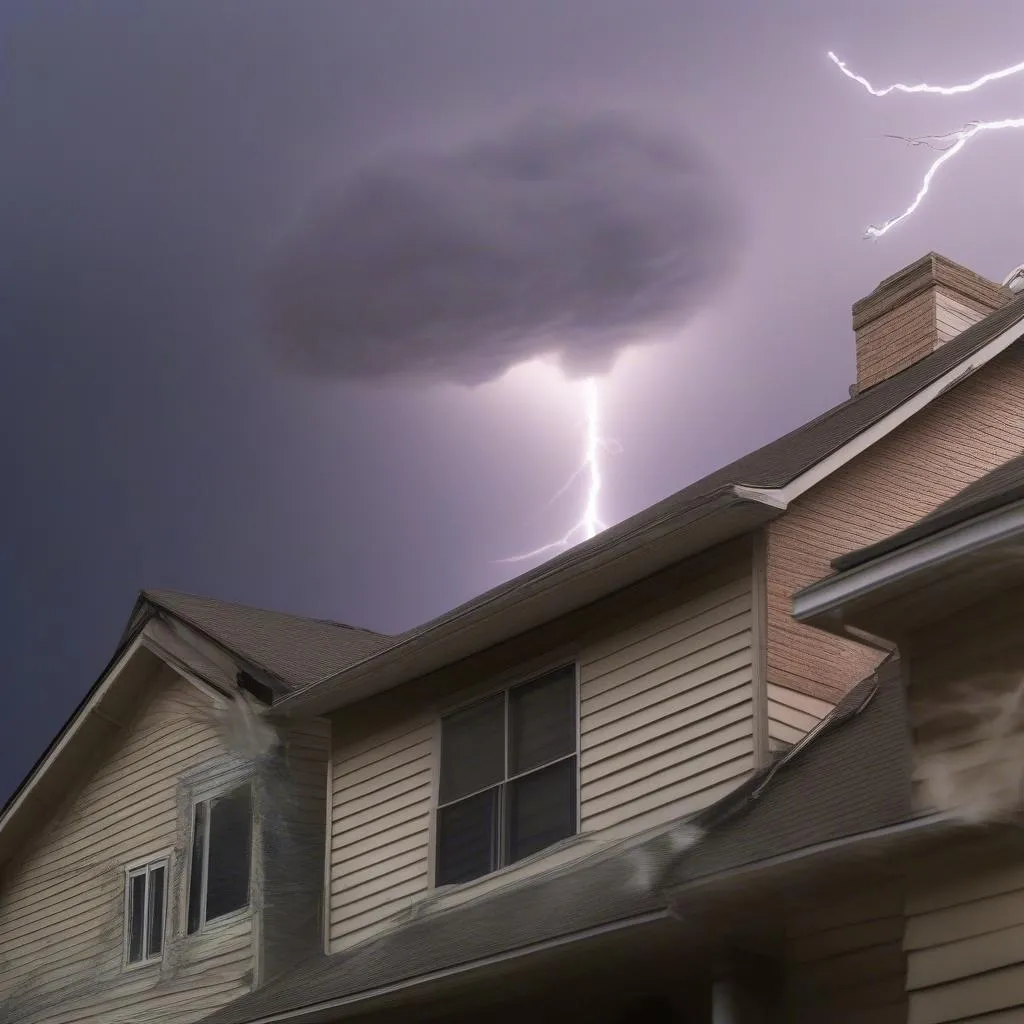Picture this: you’re cozy at home, maybe brewing a cup of tea in your charming Parisian apartment overlooking the Seine, when a sudden thunderstorm rolls in. As the rain lashes down, a bolt of lightning flashes across the sky, illuminating the Eiffel Tower in a dramatic glow. It’s a mesmerizing sight, but it also begs the question: could that lightning reach you through your plumbing?
It’s a common fear, and for good reason. Water is an excellent conductor of electricity. But before you swear off showers for good, let’s delve into the science behind lightning and plumbing.
Understanding Lightning’s Path
Lightning occurs when electrical charges build up in storm clouds and the ground. The electricity seeks the path of least resistance to discharge, which is often tall structures like trees, buildings, or even the ground itself.
Plumbing, especially in older homes, can be a potential pathway for lightning to travel. This is because metal pipes act as conductors.
How Lightning Can Enter Your Home Through Plumbing
There are two main ways lightning can enter your home through plumbing:
1. Direct Strikes: A direct lightning strike on a plumbing vent or pipe on your roof can send a surge of electricity through your plumbing system.
2. Ground Current: When lightning strikes the ground near your home, the electrical current can spread out through the soil. If your plumbing pipes are buried underground, they can act as a conductor, bringing the current into your home.
 Lightning Strike on Roof
Lightning Strike on Roof
Don’t Panic: Safety Measures
While the thought of lightning traveling through your plumbing might be unsettling, there are several safety measures that can significantly reduce the risk:
- Install Whole-House Surge Protection: This device, installed at your home’s electrical panel, diverts excess voltage to the ground, protecting your appliances and electronics from surges, including those caused by lightning.
- Ground Your Plumbing System: Ensure your plumbing system is properly grounded to the earth. This provides a direct path for electricity to flow safely into the ground, reducing the risk of it traveling through your home’s wiring or plumbing.
- Consider Plastic Pipes: If you’re building a new home or replacing old plumbing, consider using plastic (PVC) pipes for water lines. Plastic is an insulator and does not conduct electricity.
Dispelling Myths and Answering FAQs
Q: Is it safe to shower or wash dishes during a thunderstorm?
A: While the risk is relatively low, it’s best to err on the side of caution and avoid contact with water during a thunderstorm.
Q: What about swimming pools?
A: Outdoor swimming pools are particularly dangerous during thunderstorms. Lightning can easily travel through the water, putting swimmers at risk.
Q: Can lightning travel through plastic pipes?
A: No, plastic pipes are insulators and do not conduct electricity.
Travel Tips: Feng Shui and Safe Travels
Speaking of safety, did you know that Feng Shui, the ancient Chinese practice of harmonizing energy, offers tips for safe travels? Keeping your travel documents organized and your suitcase clutter-free is believed to promote smooth journeys.
For more travel tips and to discover exciting destinations around the world, visit travelcar.edu.vn.
 Feng Shui Travel Tips
Feng Shui Travel Tips
Conclusion
While the possibility of lightning traveling through plumbing is real, it’s important to remember that the risk is relatively low, especially with proper safety precautions in place. By understanding the science and taking necessary steps, you can enjoy the beauty of a thunderstorm from the comfort of your home, worry-free.
Don’t forget to share your thoughts and experiences in the comments below. Happy and safe travels!